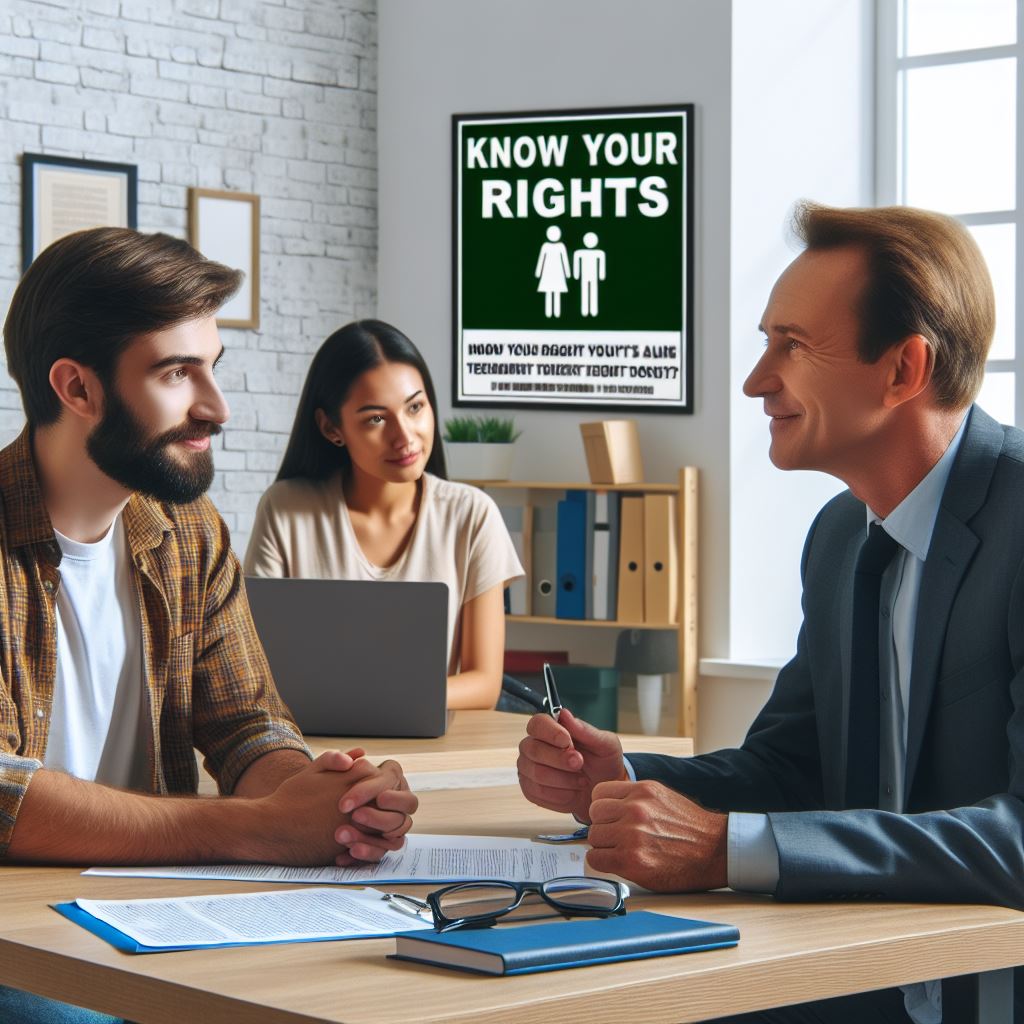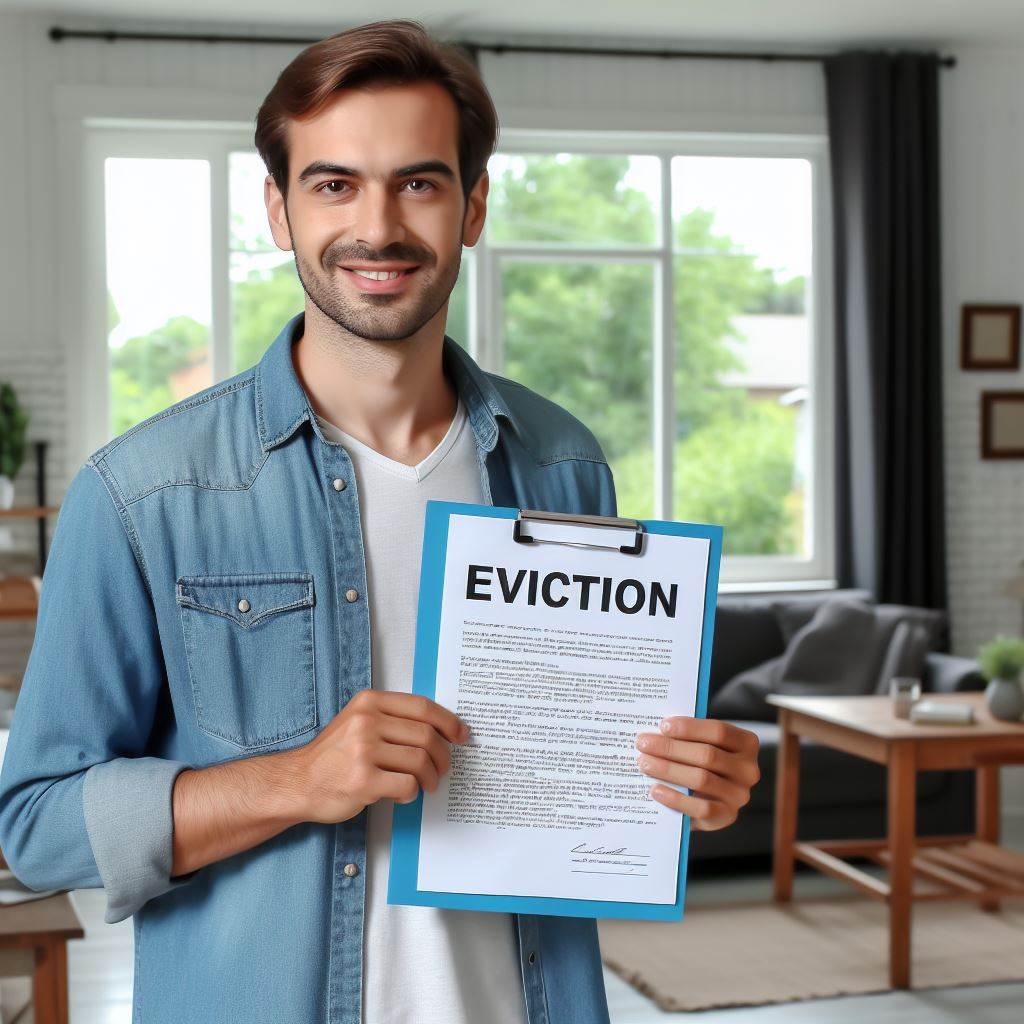Introduction
A. Importance of Understanding Tenant’s Privacy Rights
- Understanding privacy rights ensures mutual respect between landlords and tenants.
- It protects tenants from unwarranted intrusion into their personal lives.
- Knowledge empowers tenants to assert their rights and maintain a safe living environment.
- Privacy rights foster trust and healthy landlord-tenant relationships.
- Ignorance of these rights can lead to legal disputes and breaches of trust.
B. Overview of the Blog Post Content
- Explanation of tenant privacy rights under the law.
- Discussion on permissible landlord access to rental properties.
- Guidelines for handling tenant information and communication.
- Measures to safeguard tenant privacy in shared spaces.
- Addressing common misconceptions about tenant privacy rights.
Definition and Scope of Tenant’s Privacy Rights
As a tenant, understanding your privacy rights is crucial to ensuring a secure and comfortable living environment.
Landlords have certain obligations regarding tenant privacy, which are outlined to protect individuals’ rights within the rental agreement.
Let’s delve into the definition, scope, and nuances of tenant privacy rights.
A. Explanation of Tenant’s Privacy Rights
Tenant privacy rights encompass the protection of personal space, belongings, and information within the rented property.
These rights are safeguarded by laws and regulations, which vary by jurisdiction. In general, tenants have the right to:
- Exclusive Use: Tenants are entitled to exclusive possession of their rented premises without intrusion from the landlord, except in cases of emergency or with proper notice.
- Privacy of Communications: Landlords are prohibited from intercepting or monitoring tenants’ communications without consent.
- Confidentiality of Personal Information: Landlords must safeguard tenants’ personal information provided during the rental application process and throughout the tenancy.
B. Types of Information Protected
Tenant privacy rights extend to various types of information, including:
- Personal Identification: This includes social security numbers, driver’s license numbers, and other identifying information.
- Financial Information: Bank account details, credit card numbers, and income statements are considered sensitive and must be protected.
- Health Information: Any medical information disclosed to the landlord, such as disabilities or medical conditions, should be kept confidential.
- Communications: Emails, text messages, and phone calls exchanged within the rented premises are private and should not be monitored without consent.
C. Privacy Rights in Different Rental Situations
Privacy rights may differ depending on the type of rental situation:
- Apartment Complexes: In multi-unit buildings, tenants have the right to privacy within their individual units.
Common areas, such as hallways and laundry rooms, should also be free from unnecessary intrusion. - Single-Family Homes: Tenants renting single-family homes enjoy greater privacy, as they typically have exclusive use of the entire property.
However, landlords still have limited rights to access for maintenance and inspection purposes, usually with proper notice.
Understanding the scope of tenant privacy rights empowers renters to advocate for their privacy and maintain a sense of security within their rented space.
By upholding these rights, both tenants and landlords contribute to a harmonious rental environment.
Read: Property Maintenance: Landlord Obligations
Privacy Rights during the Application Process
During the application process for a rental property, tenants have specific privacy rights that landlords must respect.
Understanding what information landlords can legally request, the questions or requests they are prohibited from making, and how they must handle and protect tenants’ personal information is crucial for both parties involved.
A. Information Landlords Can Legally Request from Tenants
Landlords are entitled to gather certain information from prospective tenants to assess their suitability for the rental property.
This typically includes:
- Personal Identification: Landlords can request basic personal information such as full name, date of birth, and Social Security number to conduct background checks.
- Financial Information: It’s reasonable for landlords to ask for proof of income, employment details, and credit history to evaluate the tenant’s ability to pay rent consistently.
- Rental History: Landlords may inquire about the tenant’s rental history, including previous addresses and references from past landlords.
- Criminal Background: In some jurisdictions, landlords may legally request information about a tenant’s criminal history.
B. Prohibited Questions or Requests from Landlords
While landlords have the right to gather relevant information, there are limitations on the type of questions or requests they can make.
Prohibited inquiries include:
- Discriminatory Questions: Landlords cannot ask about a tenant’s race, religion, national origin, familial status, disability, or other protected characteristics under fair housing laws.
- Invasive Personal Questions: Questions about marital status, sexual orientation, or medical history are off-limits as they are unrelated to the tenancy.
C. Use and Protection of Tenant’s Personal Information
Landlords have a responsibility to handle tenants’ personal information with care and respect their privacy.
They should:
- Secure Storage: Personal information provided by tenants should be stored securely to prevent unauthorized access or disclosure.
- Limited Access: Landlords should only share tenants’ personal information with relevant parties involved in the rental process, such as property managers or screening agencies.
- Legal Compliance: Landlords must adhere to data protection laws and regulations applicable in their jurisdiction, ensuring that tenants’ information is used lawfully and ethically.
In a nutshell, tenants have the right to privacy during the application process, and landlords must abide by legal guidelines regarding the collection, use, and protection of their personal information.
Understanding these rights and responsibilities is essential for fostering a transparent and respectful landlord-tenant relationship.
Read: Rent Increase Rules: A Guide for Tenants

Privacy Rights during the Tenancy
A. Landlord’s right to enter the rental property
During a tenant’s occupancy, the landlord has the right to enter the rental property.
Landlords may enter the property for specific reasons such as repairs, inspections, or emergencies.
However, landlords must provide reasonable notice to tenants before entering the rental property.
Reasonable notice is typically 24 to 48 hours in advance, except in case of emergency situations.
B. Notice requirements for landlord’s entry
Landlords must provide written notice to tenants stating the date, time, and purpose of entry.
The notice should be delivered through a valid and reliable mode of communication, such as email or mail.
The purpose of the notice is to give tenants time to prepare for the landlord’s entry.
Tenants have the right to deny entry if the notice does not comply with legal requirements.
C. Exceptions to notice requirements
In certain circumstances, landlords may enter the rental property without providing prior notice to tenants.
These exceptions include emergencies, when the tenant has abandoned the property, or when granted access by court order.
However, landlords should still aim to provide reasonable notice whenever possible, even under these exceptions.
D. Usage of security cameras or surveillance systems
Landlords may use security cameras or surveillance systems in common areas of the rental property.
Common areas include entrances, hallways, parking lots, or other shared spaces within the premises.
However, surveillance should not invade the tenant’s privacy within their individual rented unit.
Installing cameras inside a tenant’s unit violates their privacy rights and is generally not permitted.
Tenants have the right to file complaints or take legal action if their privacy rights are violated.
Overall, tenants have privacy rights during their tenancy, and landlords must respect these rights.
Landlords should provide proper notice before entering the rental property, except in emergency situations.
Exceptions to notice requirements exist, but landlords should still prioritize tenant privacy whenever possible.
The use of security cameras or surveillance systems should be limited to common areas and not invade tenant privacy.
Tenants have the right to take legal action if their privacy rights are violated by landlords or surveillance practices.
Read: Lease Termination: Rights and Procedures
Privacy Rights and Maintenance Requests
A. Tenant’s right to privacy during maintenance or repairs
When it comes to maintenance or repairs in a rented property, tenants often have concerns about their privacy.
It’s crucial to understand that tenants have a right to privacy, even when repairs are necessary.
Landlords or maintenance personnel should provide reasonable notice before entering the premises for maintenance purposes, except in cases of emergency.
B. Sharing maintenance requests with others
Tenants may wonder whether their maintenance requests can be shared with others.
Generally, maintenance requests should be handled with confidentiality.
However, landlords may need to share relevant information with maintenance staff or contractors to address the issue effectively.
It’s essential for landlords to maintain discretion and only share information on a need-to-know basis to respect the tenant’s privacy.
C. Landlord’s access to tenant’s personal belongings
Landlords have a responsibility to maintain the property, but this does not grant them unrestricted access to a tenant’s personal belongings.
Unless there is a valid reason, such as conducting repairs or inspections, landlords cannot enter the tenant’s living space without proper notice.
Tenants have the right to enjoy their rented space without unwarranted intrusion.
All in all, privacy rights are crucial in the landlord-tenant relationship, especially concerning maintenance and repairs.
Tenants should feel confident that their privacy is respected, even when repairs are necessary.
Landlords must adhere to legal requirements regarding notice and access to ensure tenants’ privacy rights are upheld.
By maintaining open communication and respecting boundaries, both landlords and tenants can foster a positive and respectful living environment.
Read: Landlords: Navigating Repair Responsibilities
Privacy Rights at Lease Termination
As a tenant, understanding your privacy rights at the end of your lease agreement is crucial.
Here, we’ll delve into the key aspects concerning the return of your security deposit, your responsibility regarding personal information, and the landlord’s access to the rental property during move-out.
A. Return of Security Deposit and Privacy Implications
When you’re preparing to move out, the return of your security deposit becomes paramount.
It’s essential to ensure that the landlord doesn’t exploit this process to intrude upon your privacy rights.
While landlords have the right to inspect the property for damages, this shouldn’t extend to invasive searches into your personal belongings or private spaces.
Any deductions from the security deposit should be clearly documented and justified, focusing solely on damages beyond normal wear and tear.
B. Tenant’s Responsibility to Remove Personal Information
As you prepare to vacate the premises, take proactive steps to safeguard your personal information.
This includes removing any sensitive documents, such as bank statements, personal correspondence, or identification documents, from the property.
Additionally, ensure that you’ve logged out of any accounts on shared devices and cleared personal data from appliances or electronic devices you’re leaving behind.
By taking these precautions, you minimize the risk of your private information falling into the wrong hands.
C. Landlord’s Access to the Rental Property During Move-Out
During the move-out process, landlords may need access to the property for various reasons, such as conducting inspections or facilitating repairs.
However, this access should be reasonable and respectful of your privacy.
Landlords should provide advance notice before entering the premises, except in cases of emergency or mutual agreement.
Moreover, they should refrain from conducting intrusive searches or inspections that violate your privacy rights.
If you have concerns about the timing or frequency of the landlord’s visits, don’t hesitate to communicate your boundaries clearly.
Therefore, as a tenant, you’re entitled to privacy rights even at the termination of your lease.
By understanding these rights and taking proactive measures to protect your privacy, you can ensure a smooth transition out of the rental property while safeguarding your personal information.
Violations of Tenant’s Privacy Rights
Tenant privacy rights are crucial for fostering a sense of security and peace within a rental property.
However, there are instances where these rights may be infringed upon.
Understanding the legal recourse, reporting procedures, and potential consequences for such violations is essential for tenants to protect their rights effectively.
A. Legal recourse for privacy rights violations
When a landlord breaches a tenant’s privacy rights, the tenant has legal options to address the situation.
This may include seeking legal advice to understand their rights fully and drafting a formal complaint to the landlord.
In some cases, tenants may pursue legal action through small claims court or civil court to seek damages for privacy violations.
B. Reporting violations to local housing authorities
Tenants can also report privacy rights violations to local housing authorities or tenant advocacy organizations.
These entities can investigate the matter and take appropriate action against the landlord if necessary.
Tenants should keep detailed records of any incidents, including dates, times, and specific details of the violation, to strengthen their case.
C. Potential consequences for landlords who violate tenant’s privacy rights
Landlords who disregard tenant privacy rights may face various consequences, both legal and reputational.
Depending on the severity of the violation, landlords could be subject to fines, penalties, or even eviction proceedings.
Additionally, repeated privacy violations could result in damage to the landlord’s reputation and rental business, leading to difficulties in attracting and retaining tenants in the future.
Essentially, tenant privacy rights are fundamental, and violations of these rights must be addressed promptly and effectively.
Tenants should familiarize themselves with their rights and the available recourse options in case of a privacy violation.
By taking proactive measures and advocating for their rights, tenants can help ensure a safe and secure living environment within their rental properties.
Conclusion
Throughout this post, we’ve delved into the intricacies of tenant’s privacy rights, understanding the fundamental importance of maintaining a tenant’s privacy while also balancing the landlord’s right to access their property.
We’ve covered various aspects including the landlord’s right to entry, reasonable notice requirements, and exceptions to privacy rights such as emergencies and repairs.
It’s crucial for both tenants and landlords to be well-versed in these rights to ensure a harmonious and legally compliant tenancy.
While this post provides a comprehensive overview of tenant’s privacy rights, it’s essential to recognize that each situation may have unique nuances.
Therefore, it’s strongly advised for tenants to seek legal advice when faced with privacy concerns that aren’t adequately addressed by general guidelines.
Legal professionals specializing in landlord-tenant law can offer tailored advice and representation, ensuring that your rights are protected effectively.
Understanding and asserting tenant’s privacy rights is not only a matter of legal compliance but also vital for maintaining a sense of security and autonomy within one’s home.
By knowing your rights and responsibilities as a tenant, you can prevent potential disputes and ensure that your living environment remains conducive to your well-being.
Remember, asserting your privacy rights respectfully yet firmly can help foster a positive landlord-tenant relationship built on mutual respect and understanding.
In the end, tenant’s privacy rights are a cornerstone of rental agreements, safeguarding individuals’ right to privacy within their rented premises.




